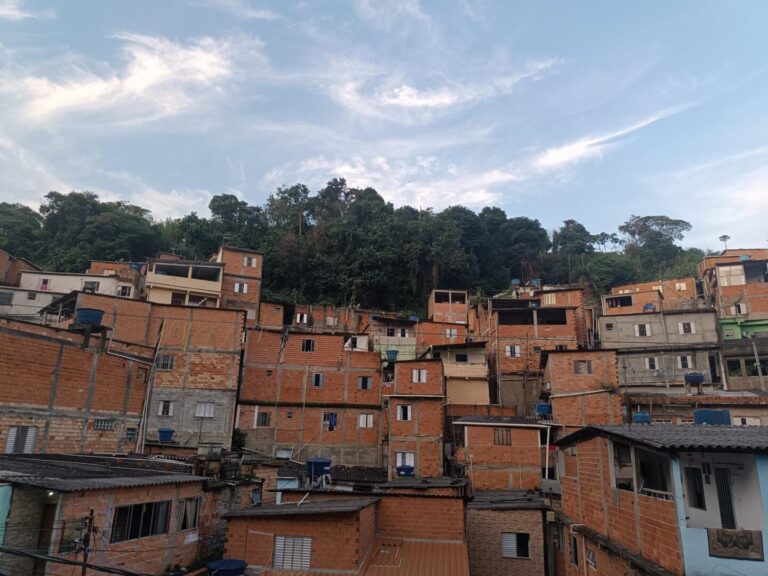Uma experiencia de pao de queijo, muito feijao y samba!
I was in Sao Paulo city for two months and three weeks. During my time there I was able to understand a lot of Brazilian culture, their music, the favela history and way of living, the language, and their food.
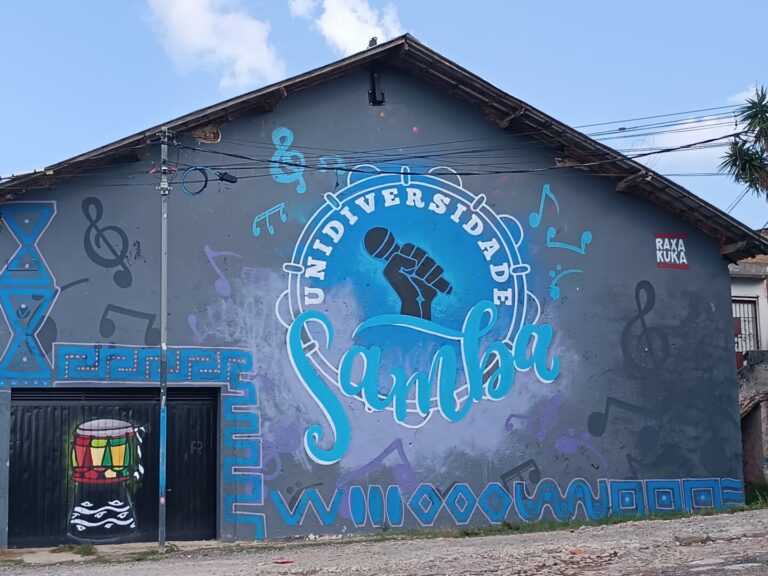
In Favela Da Paz Institute there are many different projects and things happening at the same time. I don’t know how but somehow you always end up knowing what the next activity is.
Although Favela Da Paz focuses a lot in music and percussion it also has many more projects.
There are exchanges with people from other favelas and diverse projects and alternatives around the city. They have a removable energy project. All the Institute energy is solar energy. Each week there are dance lessons including Santanello, and Pagode. There is a weekly podcast that future different local artists. This was for sure one of my favorite activities. Although at the beginning I didn’t understand much it was always fun and involved some awesome musicians performing. It was like a private tiny desk!
The institute always tries to have different classes or “aulas” as they call them. These classes are open to the people that live at the institute and public in general. In my time there I participated in an audiovisual and cinema class, a workshop about the vulva, feminine organs , and menstrual cycles phases. Dance classes. A 3-day exchange experience and Montessori activities, and a week workshop about healing your inner child.
Each week there was also a creativity art “aula” where many art activities were done. One of them my personal favorite was making paper mâché houses. All the activities where optional as you are the one who decides what you want to contribute and be part of, always respecting your own time and learning process.
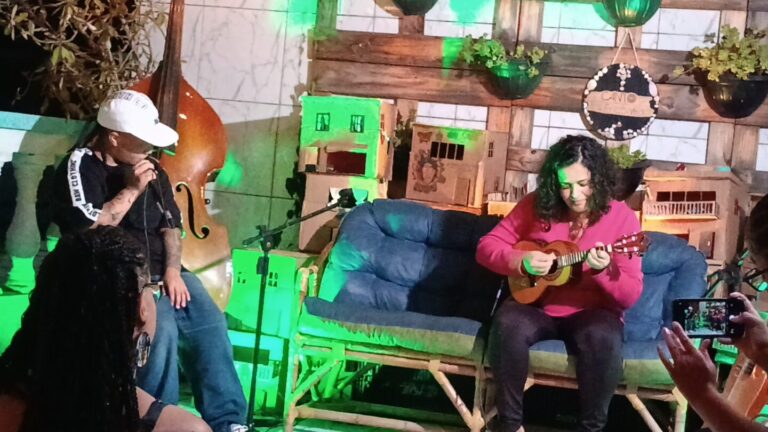
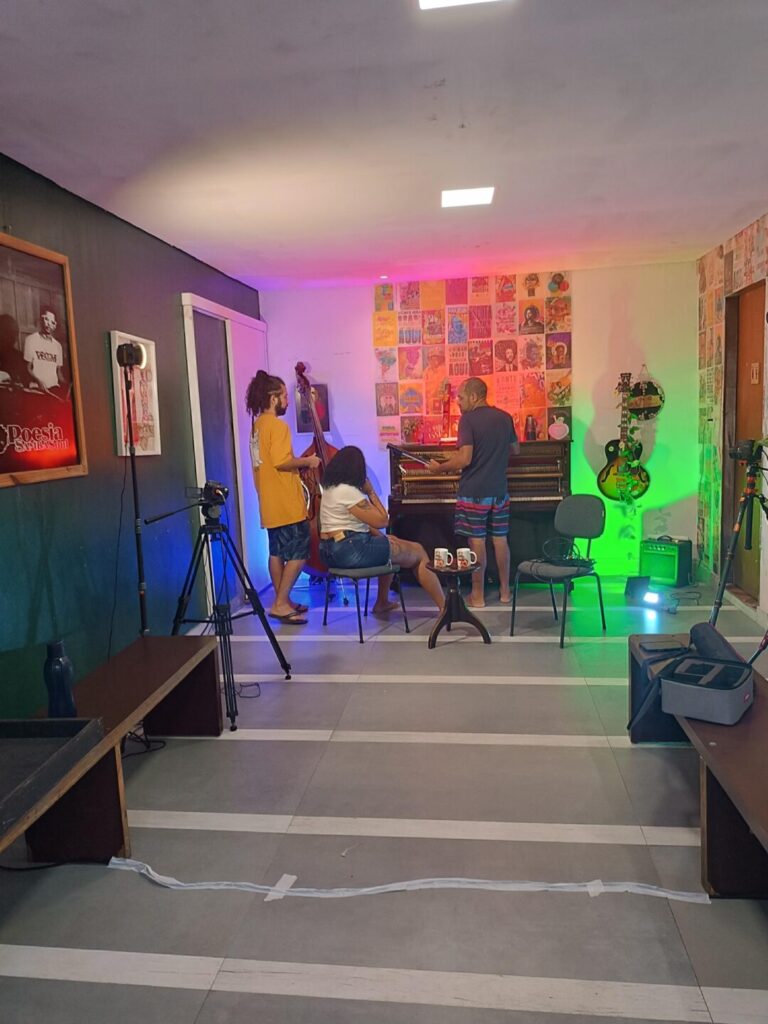
Probably my top favorite things where the espontaneusty of music being played all the time, the Saraus. SAMBA NIGHTS, percussion classes and VegeArte.
Sarau is what brasilians call nights were people gather and share art. It can be singing, poetry, or dancing. This was a very cool experience. I had no idea what to expect. Each Sarau there was awesome musicians, rhyming, poetry and rappers.
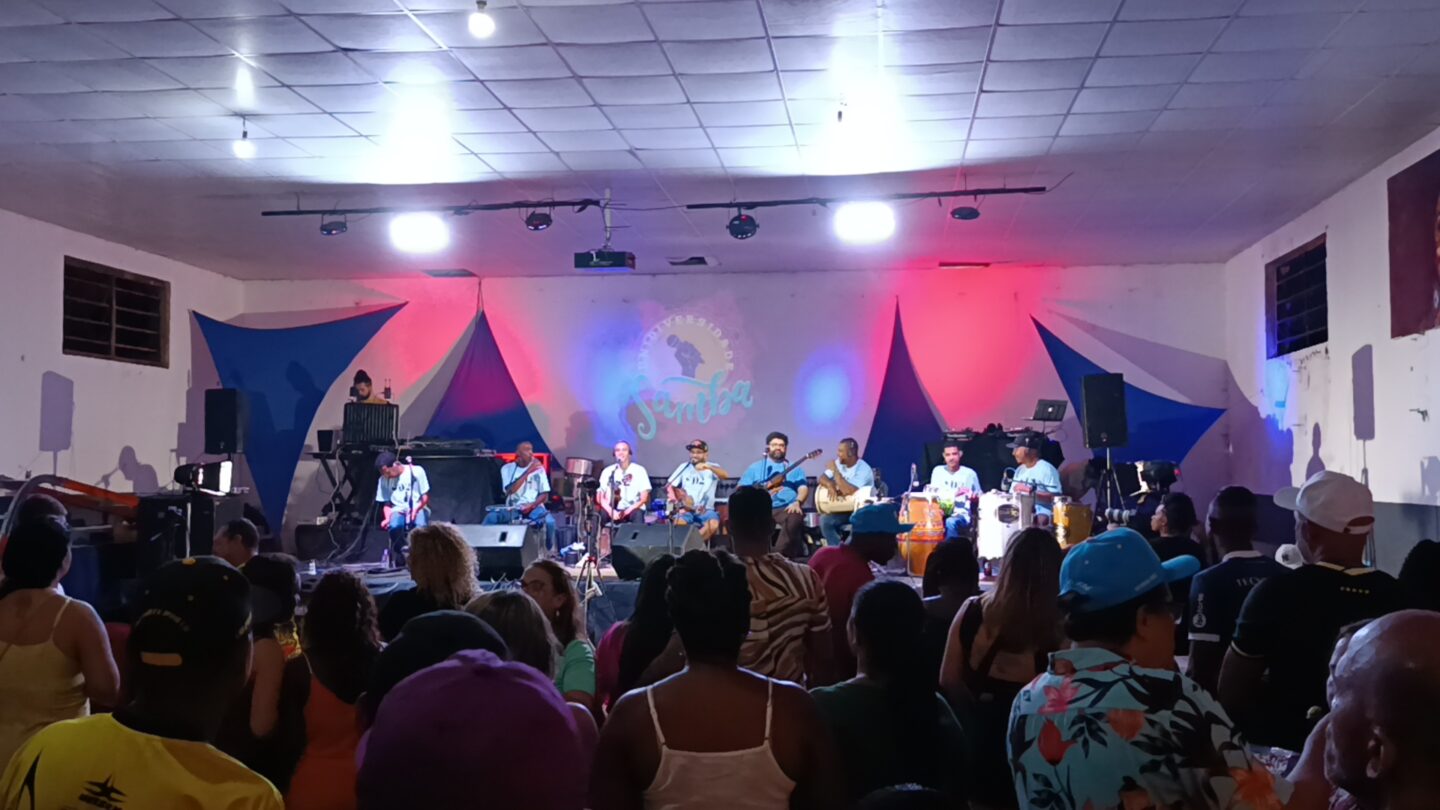
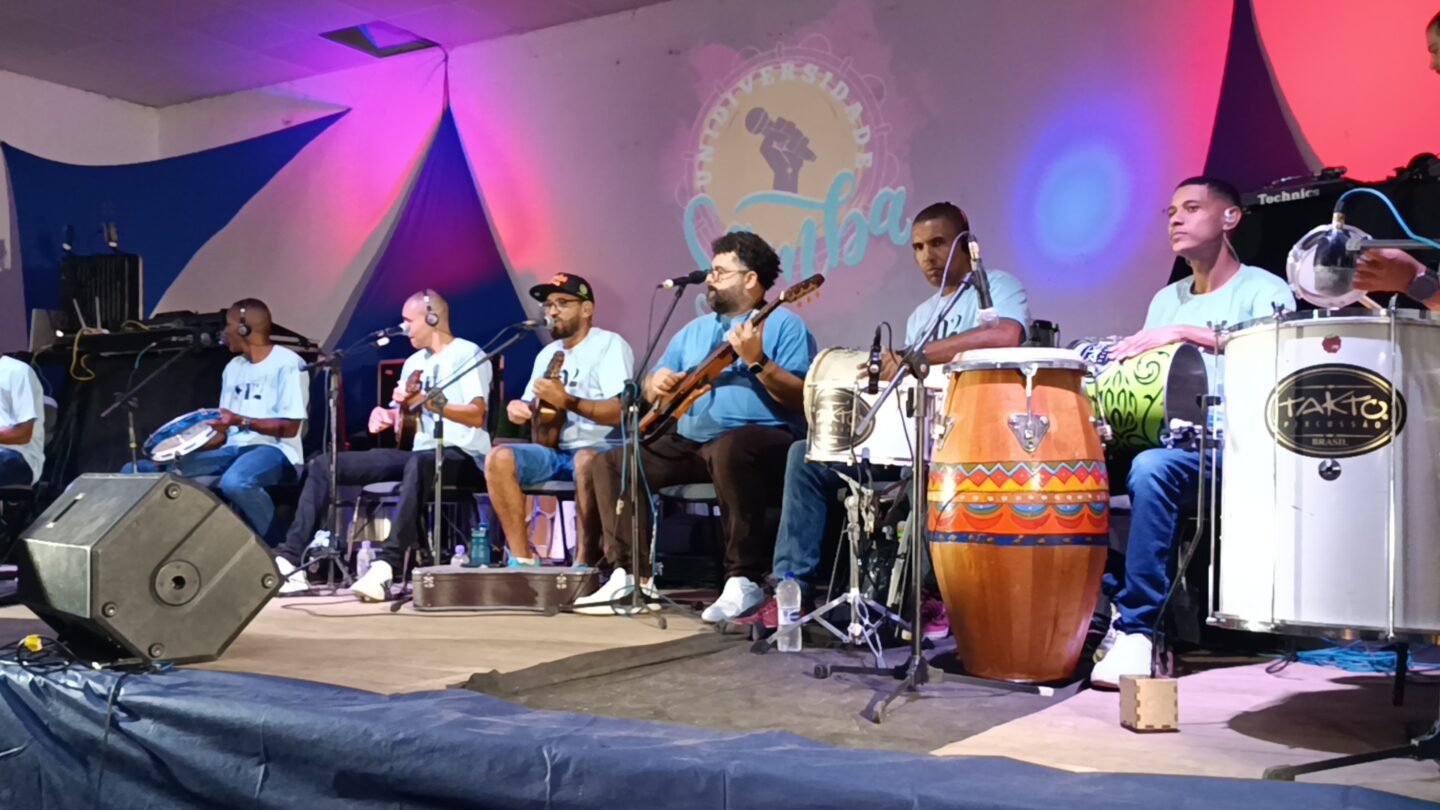
SAMBA NIGHTS with Samba Na.2. Samba nights are awesome. Samba being played live and being able to see choreographies that people used to do in the 70s and the energy of people enjoying music was just great.
Percussion classes were so fun. Pequeno and Luis are two really goofy and great teachers. They have patience and make you feel welcomed. This was a very nice space for me the first couple weeks when I didn’t understand a lot of Portuguese and people didn’t understand my Spanish. But all of us understood music, so it worked out!
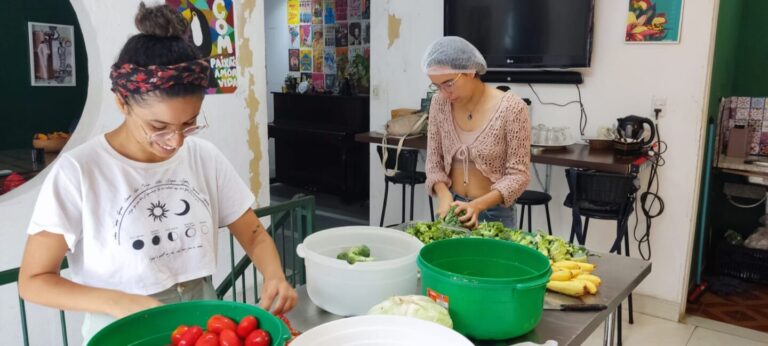
And lastly VegeArte. VegeArte is a Project that has a focus in healthy vegetarian food made mostly with local and home ingredients. Each week Elem, one of the founders of the Project, has a class where she teaches a recipe and we all make it together and then enjoy eating. I learned so many recipes including banana peel pudinn,and vegetarian farofa. It was a very good way to learn a lot of daily words like oil (oleo), or cooking pot (panela). I got to know people and had a ton of laughs trying to translate things. It was very cool to get to cook things we have in Ecuador in totally different ways. I was able to understand the interconnection that music has in Brazilian cuisine
Although I had some very hard times in my learning process in Brasil. Like when I got dengue. I think I got a very culturally rich experience and I am very grateful for the support I had from people at Institute Favela Da Paz and the Ecoverse. I think the phrase that I used the most in Brasil was “muito brigado” and I really mean it! It was one of the most growing experiences for me. I came home with a different perspective of life.
